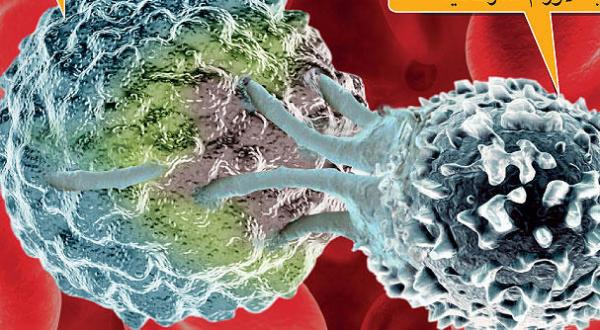London- A study, presented at the American Association for the Advancement of Science (AAAS) meeting in Washington DC, has proven for the first time that engineered “memory T-cells” can persist in the body for 14-plus years. The early findings have not been published or peer-reviewed by experts.
In this treatment, T-cells are removed from the patient’s body and then modified by being tagging with ‘receptor’ molecules that particularly targets cancer cells. The modified cells are further put back into the patient’s body. Noting that the targeting molecules are derived from specially bred genetically engineered mice; these molecules are also known as chimeric antigen receptors (Cars).
After the infusions of these molecules with the T-cells of the patient, T-cells in turn subsequently reduces the ability of the particular cancer to protect itself from the body’s natural immune system
Dr. Chiara Bonini, a hematologist at the San Raffaele Scientific Institute, noted that the ultimate best solution would be a long-term treatment involving the modified memory of T-cells to automatically attack cancer involves training the modified memory of T-cells to automatically attack cancer that it was trained for earlier.
“This is really a revolution,” Bonini added, via “The Guardian”. “T-cells are a living drug, and in particular they have the potential to persist in our body for our whole lives.”
Moreover, Professor Stanley Riddell, an immunotherapy researcher at the Fred Hutchison Cancer Research Center in Seattle, found using treated immune cells wiped out cancer in 27 of 29 patients with acute lymphoblastic leukemia in one trial.
The patients had previously failed all other treatments. Cancer was also reduced in six out of seven patients whose cancer had spread. However, there were some serious side effects in the latest trials.
“This is extraordinary,” said Dr. Stanley Riddell. “This is unprecedented in medicine to be honest, to get response rates in this range in these very advanced patients.”
Nevertheless, “Sky News” reported that Riddell described the results as a “potential paradigm shift” in cancer treatment. He also added that more work was needed, and that the scientists did not yet know how long that the now symptom-free patients would be in remission from the cancer — remission is not the same as being cured of cancer, because it can still come back.
Riddell also said one of the next steps is to try the immune cell therapy on patients with solid tumors, though he added that it could be difficult, because the body’s natural defenses sometimes have trouble recognizing cancer cells.
Experts showed their T-cell immunotherapy treatment for leukemia had an “unprecedented” success rate of 94 percent in patients who were given only months to live.
Although, the treatment mostly showed positive results but it had severe and potentially deadly side-effects too. According to the researchers, during the trial, at least seven of the patients were required to be kept in intensive care as the suffered from an immune reaction known as cytokine release syndrome (sCRS). Out of those seven patients, two of them died.
The researchers added that further work was required into the treatment as it was not established for how long the patients would remain symptom-free after the treatment.

